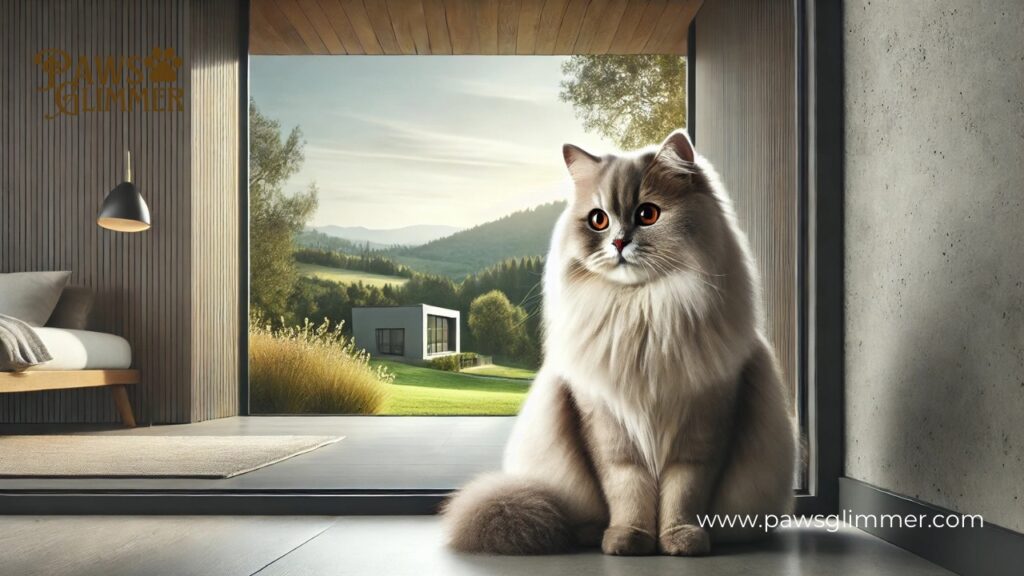Why Does My Cat Meow after Pooping? 🐱💩 Have you ever wondered why your feline friend lets out a triumphant meow after using the litter box? This peculiar behavior, often referred to as post-poop vocalization, is more common than you might think. 🧐 Understanding this unique expression can help you connect better with your kitty.
In this comprehensive guide, we’ll explore the reasons behind this curious cat conduct, including instincts, territorial claims, or even just a desire for attention. It’s fascinating to observe how our furry companions communicate their feelings. 💬✨
We’ll also provide practical solutions to address this behavior if it becomes excessive or concerning. By understanding your cat’s vocalizations, you can enhance their well-being and strengthen your bond. 🏠❤️
Understanding Feline Bathroom Behavior
Before we dive into the specifics of post-poop meowing, let’s take a moment to understand what’s considered normal when it comes to cat toilet habits. Cats are naturally clean animals, and their litter box behavior is an essential part of their daily routine.
The Typical Feline Restroom Ritual
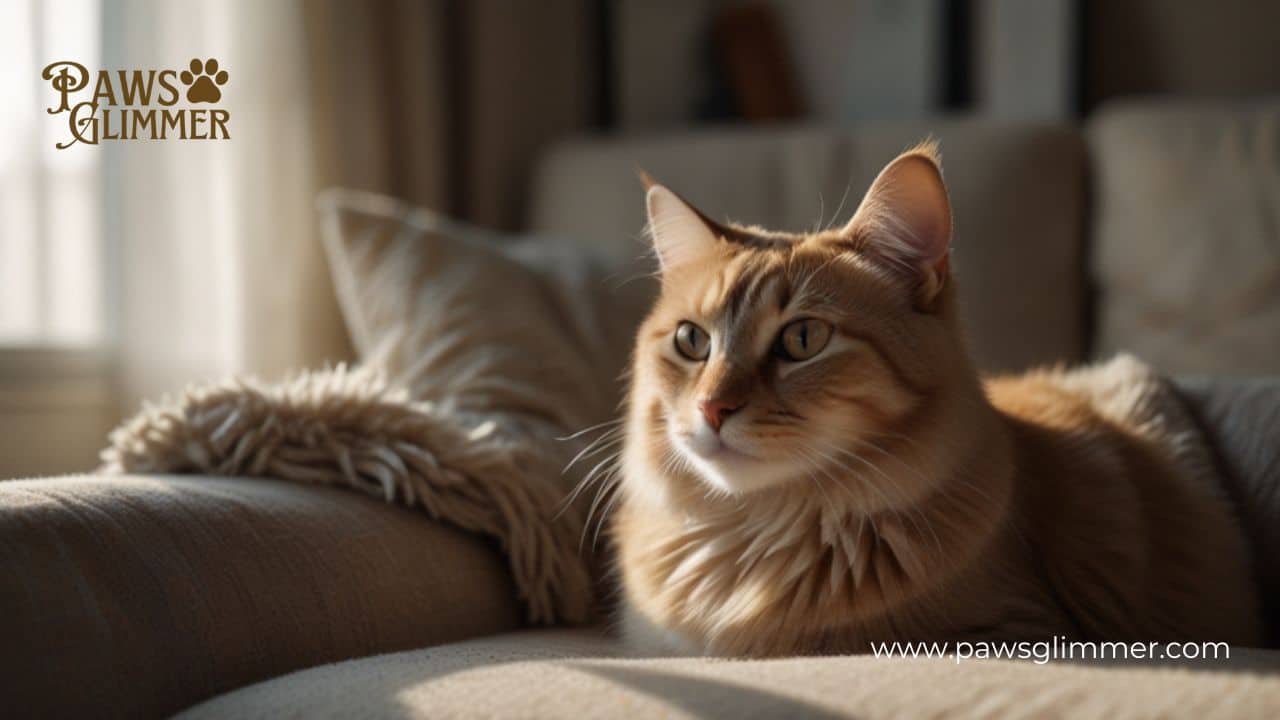
Most cats follow a predictable pattern when using their litter box:
- Sniffing and pawing at the litter
- Assuming the position
- Doing their business
- Covering their waste
- Exiting the litter box
For many cats, this process is quick and quiet. However, some felines add an extra step: a vocal announcement upon completion.
Do Praying Mantis Attack Humans?
When Meowing Becomes a Concern
While occasional post-poop vocalizations aren’t necessarily a cause for alarm, persistent or distressed-sounding meows might indicate an underlying issue. As a responsible pet owner, it’s crucial to pay attention to these kitty sounds and understand what your cat is trying to communicate.
6 Reasons Your Cat Might Meow After Pooping
Let’s explore the various factors that could be behind your cat’s post-bathroom vocals.
1. Celebration and Pride
Believe it or not, your cat might be bragging about their accomplishment! This behavior, often called the “look what I made” phenomenon, has roots in evolutionary instincts.
Case Study: Max, a 3-year-old tabby, would consistently meow after using his litter box. His owner, Sarah, noticed that Max would often seek her out immediately after, as if showing off his handiwork. This behavior is perfectly normal and even endearing for many cat parents.
2. Discomfort or Pain
Sometimes, a cat’s post-poop meow can indicate physical discomfort. Common issues include:
- Constipation: Hard, dry stools can be painful to pass.
- Diarrhea: Loose stools may cause irritation.
- Anal gland problems: Impacted or infected anal glands can be extremely uncomfortable.
If you suspect your cat is in pain, it’s essential to consult with a veterinarian promptly.
3. Litter Box Dissatisfaction
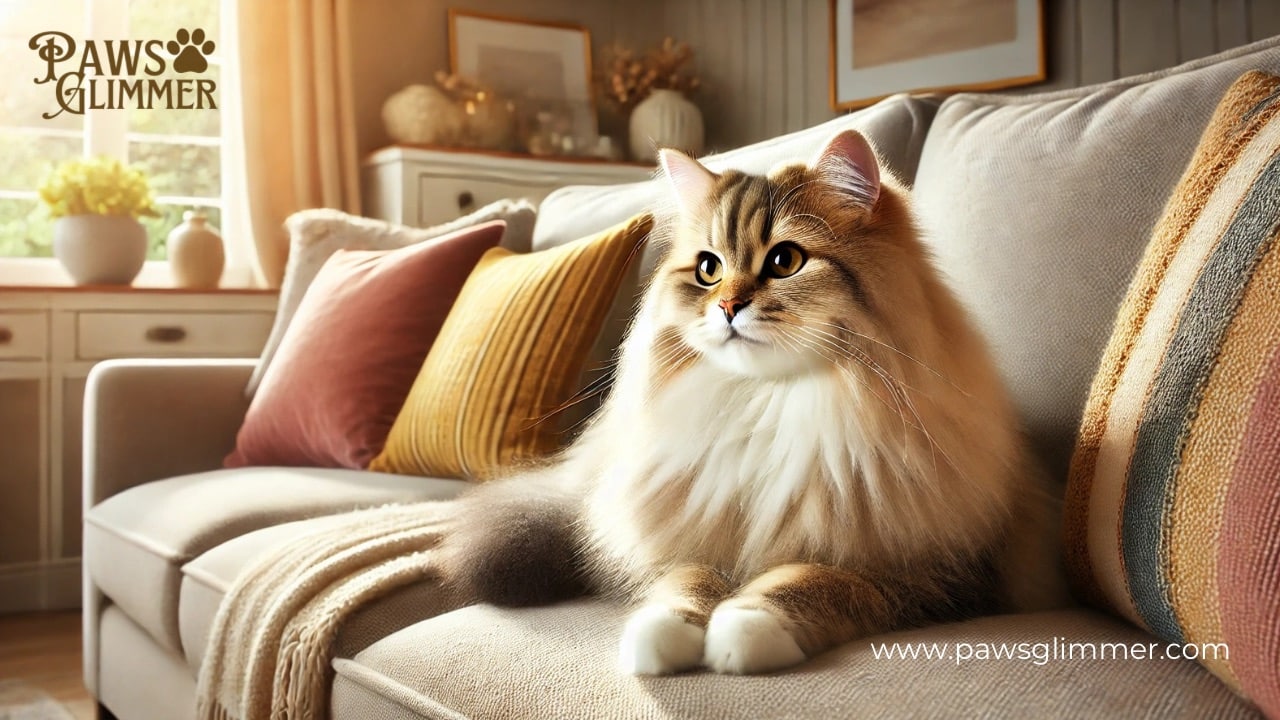
Your cat’s bathroom environment plays a crucial role in their comfort. Factors that might lead to post-poop complaints include:
- Dirty litter box
- Unpreferred litter type
- Box size or location issues
| Litter Box Factor | Potential Problem | Solution |
|---|---|---|
| Cleanliness | Dirty litter | Scoop daily, deep clean weekly |
| Litter Type | Texture or scent issues | Experiment with different litters |
| Box Size | Too small or cramped | Provide a larger box |
| Location | Too noisy or busy | Find a quieter, more private spot |
4. Seeking Attention or Rewards
Some cats learn that meowing after using the litter box gets them attention or treats. This learned behavior can be unintentionally reinforced by well-meaning owners.
Quote: “Cats are masters of conditioning their humans. If meowing after pooping results in positive attention, they’ll keep doing it,” says Dr. Emily Sanders, feline behavior specialist.
Why Mom Dogs Might Eat Their Puppies
5. Medical Issues
In some cases, post-poop meowing can be a sign of underlying health problems:
- Inflammatory bowel disease
- Parasites
- Urinary tract infections
Always consult with a veterinarian if you suspect a medical issue.
6. Anxiety or Stress

Changes in a cat’s environment or routine can lead to stress-related vocalizations. Factors might include:
- Moving to a new home
- Introduction of new pets or family members
- Changes in the owner’s schedule
Decoding Your Cat’s Post-Poop Meows
Understanding your cat’s body language and vocalizations is key to addressing this behavior effectively.
Observing Body Language
Pay attention to your cat’s posture and movements after they use the litter box:
- Relaxed body: Likely just seeking attention or celebrating
- Hunched posture: May indicate pain or discomfort
- Frequent litter box visits: Could signal a medical issue
Differentiating Between Normal and Concerning Meows
Not all meows are created equal. Here’s a quick guide to different types of cat vocalizations:
- Short, chirp-like meow: Often a greeting or sign of contentment
- Long, drawn-out meow: May indicate discomfort or distress
- Low-pitched growl or yowl: Could signal pain or serious issues
How to Address Post-Poop Meowing
Now that we’ve explored the reasons behind this behavior, let’s look at some practical solutions.
Maintaining a Clean Litter Box
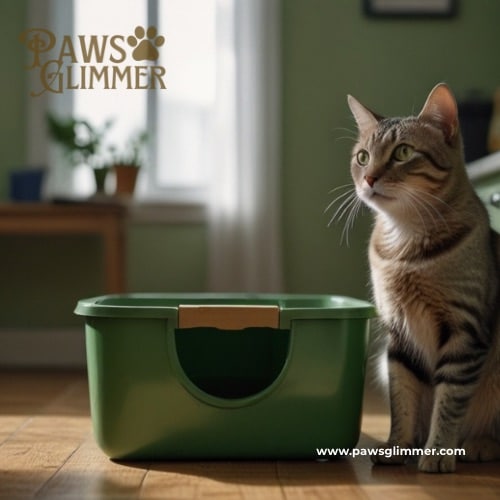
A clean litter box is essential for your cat’s comfort and health. Follow these tips:
- Scoop the litter box at least once daily
- Perform a deep clean weekly, replacing all litter
- Consider using an automatic litter box for consistent cleanliness
Experimenting with Litter Types
Cats can be particular about their litter. Try different options to find what your cat prefers:
- Clumping clay litter
- Non-clumping clay litter
- Silica gel crystals
- Natural options (pine, wheat, corn)
Addressing Potential Medical Issues
If you suspect a health problem, don’t hesitate to consult a veterinarian. They may recommend:
- Physical examination
- Fecal analysis
- Blood tests
- Urinalysis
Managing Stress and Anxiety
Creating a calm environment can help reduce stress-related vocalizations:
- Provide hiding spots and vertical spaces
- Use pheromone diffusers to create a sense of security
- Maintain a consistent routine
Positive Reinforcement Techniques
To discourage attention-seeking meows:
- Ignore post-poop vocalizations
- Reward quiet behavior with treats or attention
- Redirect your cat’s attention to toys or activities
Preventive Measures for a Happy, Healthy Cat
Proactive care can help prevent many issues that lead to post-poop meowing.
Proper Nutrition for Digestive Health
A balanced diet is crucial for your cat’s overall well-being:
- Choose high-quality, age-appropriate cat food
- Ensure adequate hydration (consider a cat water fountain)
- Consult with your vet about dietary supplements if needed
Regular Exercise and Playtime
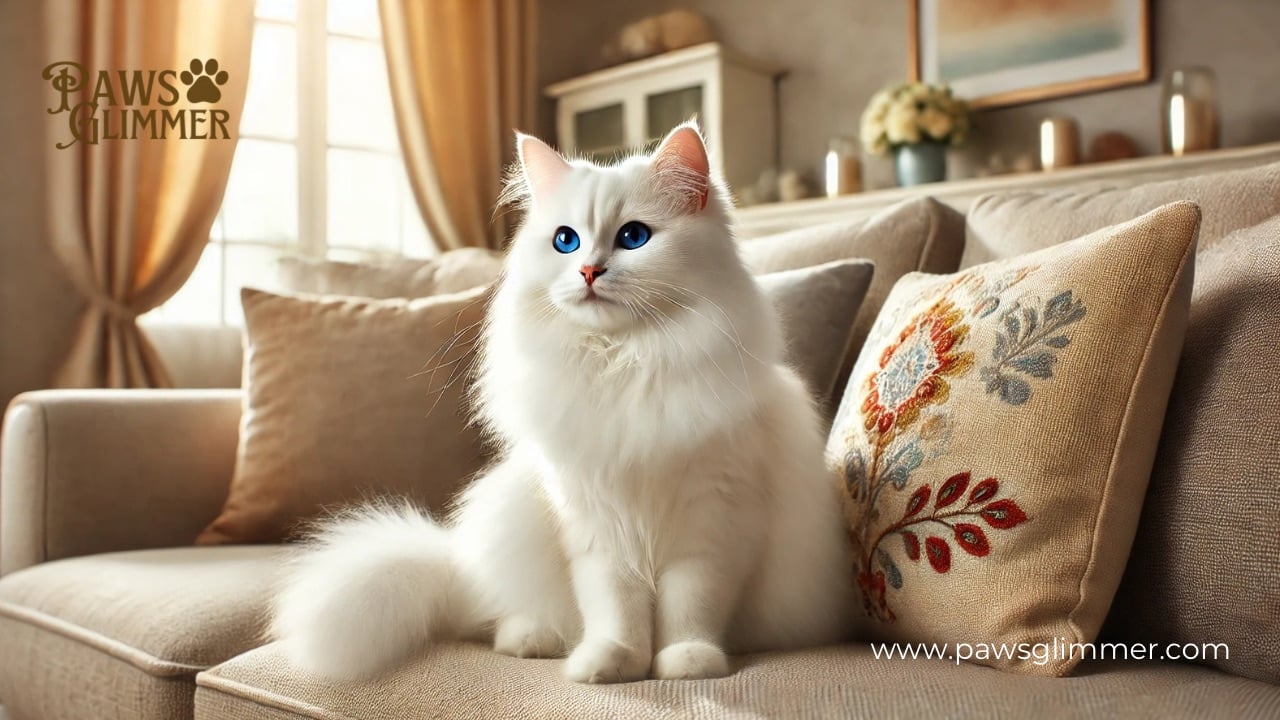
Physical activity helps maintain good digestive health and reduces stress:
- Schedule daily play sessions
- Provide interactive toys
- Consider puzzle feeders to stimulate your cat mentally and physically
Routine Vet Check-ups
Regular veterinary visits can catch potential issues early:
- Annual wellness exams
- Vaccinations and parasite prevention
- Dental check-ups
When to Worry: Red Flags in Cat Bathroom Behavior
While occasional post-poop meows aren’t usually cause for concern, some signs warrant immediate attention:
- Blood in stool or urine
- Prolonged straining in the litter box
- Sudden changes in bathroom habits
- Visible pain or distress during elimination
If you observe any of these symptoms, contact your veterinarian promptly.
Understanding Your Cat’s Unique Voice
Every cat is an individual, with their own quirks and communication style. By paying attention to your feline friend’s habits and vocalizations, you can strengthen your bond and provide better care.
Remember, your cat’s post-poop meow might just be their way of saying, “Hey, look what I did!” or “I could use some attention now.” By understanding the potential reasons behind this behavior and addressing any underlying issues, you can ensure your cat remains happy, healthy, and comfortable.
FAQs About Cat Pooping Behavior
Q: Is it normal for cats to meow while using the litter box?
A: While some vocalization is normal, excessive meowing during elimination could indicate discomfort or health issues.
Q: How often should a healthy cat poop?
A: Most adult cats should have a bowel movement once or twice a day, though this can vary based on diet and individual factors.
Q: Can diet affect my cat’s pooping behavior?
A: Absolutely. Diet plays a crucial role in digestive health and can impact stool consistency, frequency, and associated behaviors.
Q: Should I ignore my cat’s post-poop meows?
A: If you’ve ruled out medical issues, ignoring attention-seeking meows can help discourage the behavior. However, always investigate if the meows seem distressed.
Q: Can stress cause changes in my cat’s bathroom habits?
A: Yes, stress can significantly impact a cat’s digestive system and bathroom behaviors. Creating a calm environment and maintaining a consistent routine can help.
By understanding and addressing your cat’s post-poop vocalizations, you can ensure a happier, healthier life for your feline companion. Remember, when in doubt, always consult with a veterinary professional for personalized advice tailored to your cat’s specific needs.

Raymond Dandan is a seasoned pet blogger with a passion for feline care and behavior. With years of experience and a deep love for cats, Raymond brings expert insights and practical tips to “PawsGlimmer.” His engaging writing and thorough research help cat owners provide the best for their furry friends, making him a trusted voice in the pet community.

